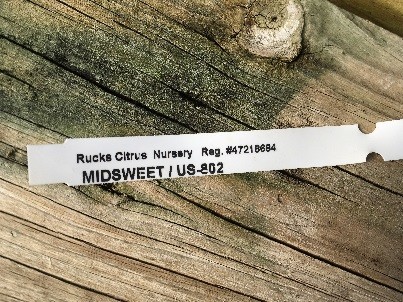Starting With Citrus
GREEN COVE SPRINGS – What’s the first plant you think of when you think of Florida? For most, it is the orange due to the impact the citrus industry has on our economy and adorns our license …
This item is available in full to subscribers.
Attention subscribers
To continue reading, you will need to either log in to your subscriber account, or purchase a new subscription.
If you are a current print subscriber, you can set up a free website account and connect your subscription to it by clicking here.
If you are a digital subscriber with an active, online-only subscription then you already have an account here. Just reset your password if you've not yet logged in to your account on this new site.
Otherwise, click here to view your options for subscribing.
Please log in to continueDon't have an ID?Print subscribersIf you're a print subscriber, but do not yet have an online account, click here to create one. Non-subscribersClick here to see your options for subscribing. Single day passYou also have the option of purchasing 24 hours of access, for $1.00. Click here to purchase a single day pass. |
Starting With Citrus
GREEN COVE SPRINGS – What’s the first plant you think of when you think of Florida? For most, it is the orange due to the impact the citrus industry has on our economy and adorns our license plates. With that in mind, most new residents and gardeners plan on adding citrus into the garden and there is quite a variety to choose from.
Proper choices and realistic expectations (especially due to the fatal and widespread citrus greening disease) are important when planning a garden that includes citrus in Clay County.
Choosing a Tree
To avoid getting a tree that is infected with major diseases, buy one that was grown in a certified nursery. Look for a tag on the tree that shows the nursery name and registration number and only purchase specimens that are healthy; showing green healthy foliage and no signs of stress. Stay away from trees of unknown stock and origin.
You should also make sure the variety of citrus you want will grow properly in Clay County. We do experience periodic freezes, so the cold-sensitive specimens need extra protection or should be avoided altogether. Even cold-tolerant citrus will often need some protection from the cold when young and a protected location of the yard is often best.
Planting the Tree
Once you choose your tree, it will need to be properly planted. The best time to put your citrus in the ground is in spring or fall and you should choose an area of the yard on the south side of the home as it is the warmest. Clear the area around the tree of any weeds or vegetation and then dig a hole as deep as the tree’s root ball. Never plant the tree any deeper than even with the ground level as you want the trees root flare (where the trunk meets the roots) to be above ground. Once the tree is in place, fill in the rest of the hole with native soil.
A soil test should also be performed to determine soil pH and nutrition. The University of Florida/IFAS Extension Office in Clay County offers free pH testing and we can refer you to other testing services for other nutrients. Never add lime when planting without first getting your pH tested.
Establishing the Tree
After the tree is in the ground, irrigation will be important. If during a dry season, water about 1-2 gallons twice a week and water as needed during a rainy season. Never let the tree wilt, which is shown by leaves that begin to cup and curl.
Fertilization should also begin about three weeks after planting in the spring, with applications occurring every six weeks from February through October. Use a balanced fertilizer, such as 6-6-6, 8-8-8, or 10-10-10 with micronutrients designed for citrus trees. For specific rates for each type of fertilizer, see http://edis.ifas.ufl.edu/hs132.
Special Considerations
As your tree grows, you will likely have to deal with different pests, diseases and other questions will arise. Contact your local UF/IFAS Extension Office for help. Also, be aware that at this point there are no varieties of citrus that are resistant to citrus greening and infection for trees in Florida should be expected at some point during the tree’s life. For more information on this disease, see http://edis.ifas.ufl.edu/pp336.
If you have any more questions about horticulture, any landscape topics, or need plant or pest materials identified, contact the University of Florida/IFAS Extension Office online at http://www.clay.ifas.ufl.edu, follow us on Facebook, or call by phone at (904) 284-6355.








